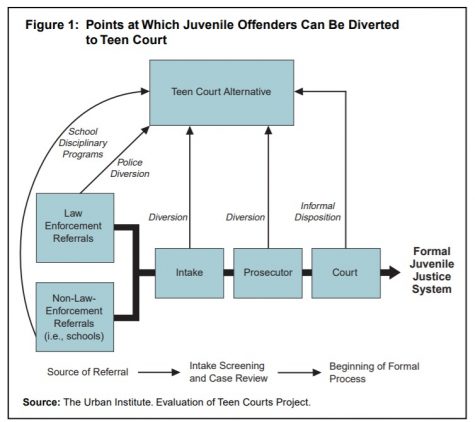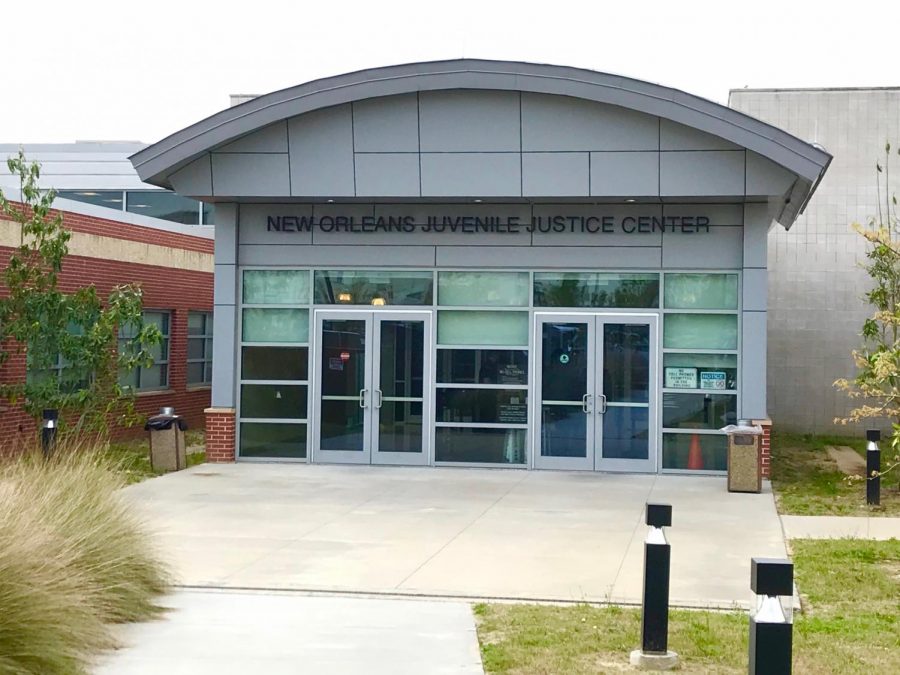Teen Court empowering at-risk juveniles in New Orleans
April 15, 2021
Teen Court is an intervention program offering alternative solutions to youth that have been charged with status offenses or other non-violent misdemeanor crimes, such as criminal trespassing or criminal damaging.
The program was discontinued following Hurricane Katrina and was reinstated in 2019 with a new director, Clarence Bickham. Bickham has an extensive history advocating for youth that spans over 15 years. He has served in several capacities while employed by New Orleans Juvenile Justice System and Orleans Parish Public Defenders.
Bickham cited the growing need for intervention measures in youth not only in New Orleans, but around the world. New Orleans has had a problem with juvenile crime rates in recent years. From 2016 to 2018, juvenile felony arrests increased from 300 to 735.
“The thing is that all jurisdictions around the world are having problems with teens being delinquent,” Bickham said. “So, they try to find programs that would institute some kind of way for turning teens around.”
Offenders can become a part of the program at any point in the adjudication process. The referral process allows for law enforcement and non-law enforcement agencies to intervene at any point to divert teens to the Teen Court program.

“Teen Court is not punitive, it’s restorative,” Bickham said. “In other words, there’s no penalty for Teen Court. It’s trying to restore the person to be whole. It’s trying to get young people at the beginning when they make their first mistake. That’s all they did — it’s a mistake.”
A core focus of the program is educating teens about the justice system. Teen Court offers offenders several pathways for understanding and learning about the law and court system. Coordinators accomplish this by setting up a mock trial consisting of Teen Court volunteers. Throughout this exercise, participants are given the opportunity to learn about many facets of the justice system and the role of a judge, attorney and bailiff.
“We want to take them and educate them on what [they] did and about the criminal justice system before [they] can get to that third or fourth time being arrested,” Bickham said. “We catch them at the beginning — let [them] know what criminal justice is all about … We try to take a negative behavior pattern and make it positive. We educate how it can elevate from a misdemeanor to a felony and what will happen when you get a felony case. As opposed to slapping [them] on the hand, sending [them] back out there into the community, we are educating them about criminal justice and the effects of criminal justice on anybody.”
Bickham emphasized that positive and negative peer pressure are essential to helping offenders understand their delinquency. He conveyed that low-level offenders are often subjected to negative peer pressure in their community and can find themselves committing more serious offenses in the future.
“We take negative peer pressure and positive peer pressure,” Bickham said. “It’s not a regular judge sitting up there saying what your charges are. It’s young people that look just like you. You got a teen judge, you got a teen prosecuting attorney, a teen defense attorney, teen juror. All those young people are just like you.”
Additional Teen Court information and registration can be found here.























emily • Apr 16, 2021 at 12:28 am
we did this up in PA, i was part of it. we called it peer jury and it was done through the our county juvenile court and included jurors from the different county school districts.